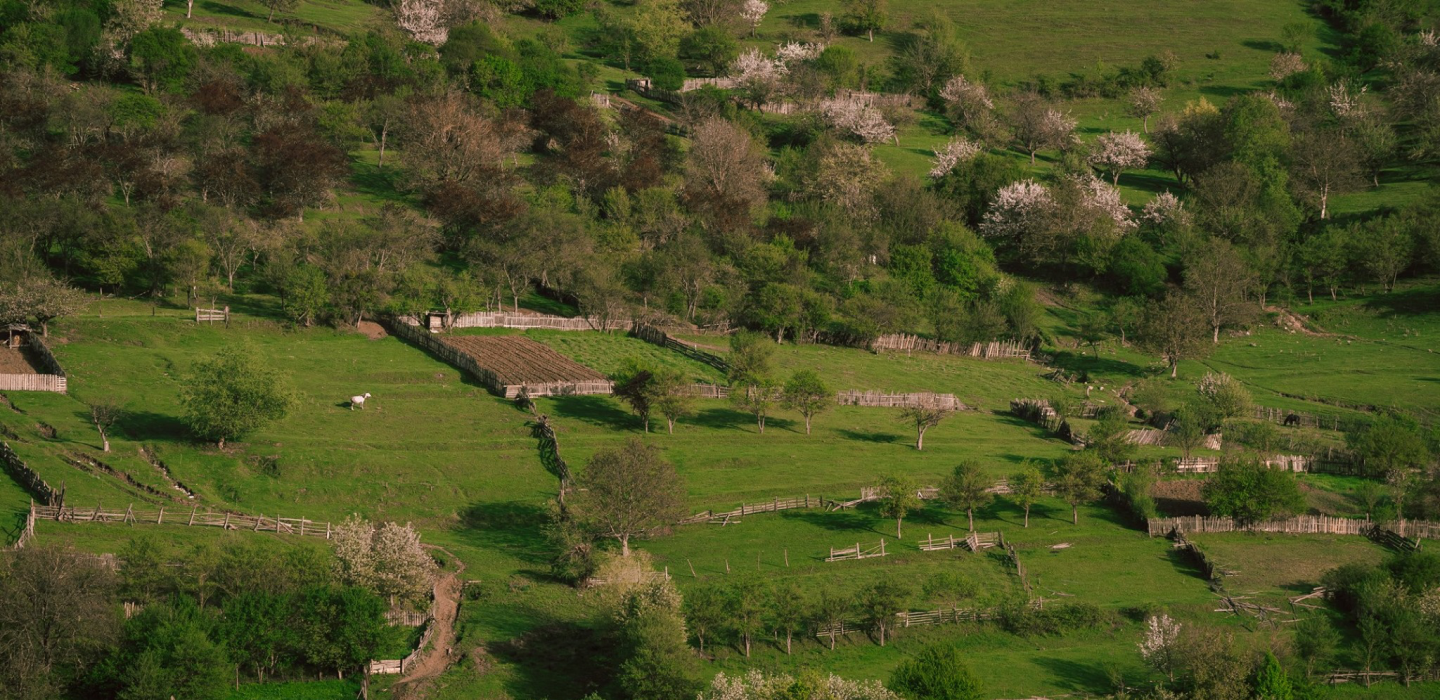Facts, myths and legends about Georgia

Why is it called Georgia?
There is no conclusive evidence as to how Georgia got its name. Georgians don't call their country by its English name. Locals refer to it as 'Sakartvelo', translated to "the place where the Kartvels – Georgians – live".
There are three theories:
1) The name of the country comes from the Greek word "γεωργός" which means "tiller of the land" because the land was so fertile.
2) 'Georgia' comes from the word Gurg/Gurgān, a Persian word for "wolf". Georgia means "the land of the wolves (warriors)". This is consistent with the Persian historical sources calling the Georgian king, Vakhtang, the "Gorgasali" (the wolf), describing him as a great warrior.
3) Named after St. George, their patron saint. He is most venerated in the country and there are around 365 Orthodox Churches named after St. George here.
There are three theories:
1) The name of the country comes from the Greek word "γεωργός" which means "tiller of the land" because the land was so fertile.
2) 'Georgia' comes from the word Gurg/Gurgān, a Persian word for "wolf". Georgia means "the land of the wolves (warriors)". This is consistent with the Persian historical sources calling the Georgian king, Vakhtang, the "Gorgasali" (the wolf), describing him as a great warrior.
3) Named after St. George, their patron saint. He is most venerated in the country and there are around 365 Orthodox Churches named after St. George here.
The home of the first Europeans
The oldest human skulls in Europe were found at an archeological site in Dmanisi, suggesting that the first men who left Africa and travelled to Europe went through Georgia. The 1.8 million-year-old skulls are the remains of an early human couple called Zezva and Mzia, making Georgia the home of the first Europeans.
The birthplace of wine
The earliest evidence of wine-making to date has been found in Georgia, where 8,000-year old wine jars were uncovered.
UNESCO has listed the country's method of wine-making as a notable piece of cultural heritage. The wine is fermented in a clay jar called a 'Qvevri'. The jars are filled with grape juice and sealed with a wooden or stone lid. The sealed jar is then buried in the ground to ferment and follow a natural process of wine-making. The crucial part of the traditional method is minimal human interaction.
UNESCO has listed the country's method of wine-making as a notable piece of cultural heritage. The wine is fermented in a clay jar called a 'Qvevri'. The jars are filled with grape juice and sealed with a wooden or stone lid. The sealed jar is then buried in the ground to ferment and follow a natural process of wine-making. The crucial part of the traditional method is minimal human interaction.

The location of the world's oldest honey
The earliest evidence of honey to date has been found in Georgia (Village Sakire, Borjomi region), where 5,500-year old honey was uncovered. Until this discovery in 2003, the oldest honey known was the one discovered in the grave of Tutankhamun, pharaoh of Egypt.
Birthplace of gold
Georgia (Village of Sakdrisi) is believed to be the world's oldest gold mine (dating back 5,400 years) based on the 10-year research of Professor Thomas Stoellner, a leading specialist in mining archaeology from the University of Bochum, Germany. The discovery is consistent with the Greek historical sources referring to Georgia (Colchis) as a country rich in gold.
Unfortunately, due to industrial excavation in the area, this claim has not yet been confirmed by scientists.
Unfortunately, due to industrial excavation in the area, this claim has not yet been confirmed by scientists.
Colchis (homeland of the Golden Fleece) and Caucasus (Prometheus's prison)
Colchis (c. 13th to the 1st centuries BC) is the earliest Georgian formation. According to the Greek historians, Colchis was a fabulously wealthy land situated on the mysterious periphery of the heroic world. Here, in the sacred grove of the war god Ares, King Aeëtes hung the Golden Fleece until it was seized by Jason and the Argonauts. In the same era, Caucasus was considered as a land where the mythological Prometheus was punished by being chained to a mountain while an eagle ate at his liver for revealing the secret of fire to humanity.

Golden lion, Kakheti region, 25th century BC.
A home to warriors
Georgian greeting "Gamarjoba" means "victory to you", as for centuries war was part of the everyday life for Georgians. Every Georgian – man or woman, was a warrior – this is best reflected in Georgian traditional dances. Due to its strategic location (between Asia and Europe, the Muslim and Christian worlds), there have always been at least two empires fighting for Georgia. For the last 20 centuries, Georgia has been occupied by many empires, including the Greeks, Romans, Persians, Turks, Mongols, Russians, Soviet Union and yet, in the 21st century, Georgia is an independent country striving to become a member of the European Union.

Silk Road and free trade
Georgia was part of the legendary Silk Road connecting East and West. Its capital – Tiflis – was a commercial hubs in the middle ages. During the era of the King David the Builder, foreigners were not taxed in order to facilitate foreign investment in the country, and people from all religions and nationalities were welcomed to live here. One can still see evidence of this in the Old Tbilisi, where worshiping places (as old as 10th century AD) of three different religions – Judaism, Christianity and Islam are still standing side by side.
Europe or Asia?
Georgia is located at the intersection of Europe and Asia (between the Caucasus mountains and the Black Sea) and together with Azerbaijan and Armenia, makes up the Caucasus region with its unique traditions and culture. While Georgia technically falls in Asia, the locals consider the country to be part of Europe (Georgia is a member of the European Council and strives to become part of the European Union). Unarguably, the Georgian culture is a mix of both Asia and Europe.
Skiing and sunbathing on the same day (not in all seasons☺)!
Georgia has 12 different climate zones, ranging from subtropical to alpine to semi-desert, and has 49 types of soil. This puts Georgia among the most biologically diverse countries on Earth. In addition, many of the most exciting animals like leopards, lynxes, and bears reside in the dense forests of the country.

Stalin's homeland
Georgia was home to Joseph Stalin. During the World War II, Stalin ruled the Soviet Union which, together with other members of the Allies, defeated the Fascist Germany. There's a Stalin Museum in his birthplace, the town of Gori, in Georgia.
Homeland of George Balanchine
George Balanchine (In Georgian, Giorgi Balanchivadze) was a Georgian-American ballet choreographer who was one of the most influential 20th century choreographers. Styled as the "Father of American Ballet", he co-founded the New York City Ballet and remained its Artistic Director for more than 35 years.
Have you heard of Demna Gvasalia?
One of the most beloved fashion brands, Balenciaga, has a Georgian art director -Demna Gvasalia (also the founder of Vetements). Only a few followers of these two brands know that the recent collections of both Balenciaga and Vestments are decorated with the Georgian alphabet, poetry, paintings and sometimes, jokes ☺

Nikala
Niko Pirosmani, simply referred to as Nikala (1862–1918), is a world class painter, exhibited worldwide and considered to be one of the founders of the naïve painting movement. Pirosmani has inspired a portrait sketch by Pablo Picasso (1972).

Fisherman by Nikala
Christianity
Georgia adopted Christianity as its national religion in 326 AD – one of the first countries in the world to do so. The majority of the population are Eastern Orthodox Christian.
Christianity was first preached in Georgia by the Apostles Simon and Andrew, followed by Apostle Mathias, in the 1st century.
Christianity was first preached in Georgia by the Apostles Simon and Andrew, followed by Apostle Mathias, in the 1st century.
Feminism in Georgia
Georgians may be considered among the first feminists. A Woman – Tamar the Great – ruled the country during the peak of its golden era. The Knight in the Panther's Skin, a Georgian epic poem written in 12th century, was devoted by the author Shota Rustaveli to Tamar the Great. The poem is all about courtly love, generosity, sincerity, dedication, and proclaims equality between men and women.
Women have generally played an important role in the Georgian history – for example, Georgians were converted to Christianity by a woman, St. Nino in the 4th century.
Notably, the Georgian language has no gender. When speaking to or about someone, irrespective of whether they are a man or a woman, animate or inanimate, you merely refer to them as "es".
Women have generally played an important role in the Georgian history – for example, Georgians were converted to Christianity by a woman, St. Nino in the 4th century.
Notably, the Georgian language has no gender. When speaking to or about someone, irrespective of whether they are a man or a woman, animate or inanimate, you merely refer to them as "es".

A unique alphabet
The Georgian script is among the unique alphabets of the world. The Georgian language has used to three different alphabets throughout its existence – Nuskhuri, Asomtaruli, and Mkhedruli. The one that Georgians use today is the latter and has 33 letters. კეთილი იყოს თქვენი მობრძანება საქართველოში (Welcome to Georgia).
UNESCO world heritage sites
There are three cultural sites listed on UNESCO's World Heritage list: an ancient city and the former capital Mtskheta, the massive cathedral complex Gelati Monastery, and the mountainous region of Upper Svaneti. 15 other sites are on a tentative list.
Georgia contains two ancient European cities
Mtskheta and Kutaisi, both former capitals of Georgia, are among Europe's 16 oldest continuously inhabited cities. Kutaisi, located in the western Georgia, was the capital of the Colchis Kingdom– the ancient region of southern Caucasus where people lived as early as the second millennium BC. Mtskheta is younger than Kutaisi and was founded about 3,000 years ago.
Europe's highest permanent settlement
The villages of Bochorna and Ushguli are the highest permanent settlements in Europe at 2,345 and 2,100 meters above sea level, respectively. Both are mountainous regions where summer is short and winter is snowy and breezy.

The world's second deepest cave – Krubera Cave in Georgia
Hidden among the mountainous region of Apkhazia (a breakaway region of Georgia, currently under Russian occupation) the Krubera Cave is the second deepest cave on the planet at 7,200 ft. (2,195 meters) deep. It takes about 27 days to reach the bottom of the cave.
Georgian song in space
"Chakrulo," a Georgian folk song usually sung at festivals and celebrations, was sent into space (amongst 27 musical compositions included in the Golden Record) on the spacecraft Voyager. The Golden Record has 115 images, different natural sounds, traditional music from various countries, spoken greetings in 55 languages, and printed messages from President Carter and U.N. Secretary General Waldheim. It's like a message in a bottle, a welcome for any prospective life forms that may come across the probe.










